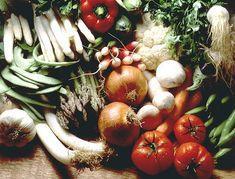
The wettest June on record and a below-par July so far mean that most crops are suffering at a time when demand for them is unseasonably high.
“In a normal year, the industry would be looking forward to the harvest of the early-season crop,” said Tim Wigram, chairman of the British Onion Producers’ Association (Bopa). “But the abnormally wet and dull weather of the last eight weeks has started to have a serious effect.”
Supplies of onions have been tight for a few months as the quality of the 2006 crop has been tailing off, and prices are at least 67 per cent higher than at this time last season, at £300 a tonne for 60-80mm onions for processing.
“It is clear the supply of onions in the UK and Europe will be very tight until mid-October until the results of this harvest are known,” said Wigram. If there is further rainfall over the next two weeks, Bopa fears there could be a further detrimental effect on both volume and internal quality as well as a risk to the external appearance of bulbs through staining.
Meanwhile, some cabbage, cauliflower and broccoli growers are considering alternative crops because of the cost of bringing their production back on stream after the June rains and floods.
Lancashire and Lincolnshire are worst affected and the Brassica Growers’ Association (BGA) estimates that only 40-50 per cent of plantings are going ahead. This will affect supplies from mid-August to late September.
Even Brussels sprouts are under significant threat, and the BGA estimates yields could be 20 per cent down as crops planted in May have not been replaced.
BGA believes that those growers facing extra costs and more expensive harvesting may turn to other more highly priced agricultural crops.
At supermarket level, Tesco has reported sales over the past four weeks of potatoes, carrots and leeks are all up by 20-23 per cent year on year, with parsnip sales running 52 per cent higher.



